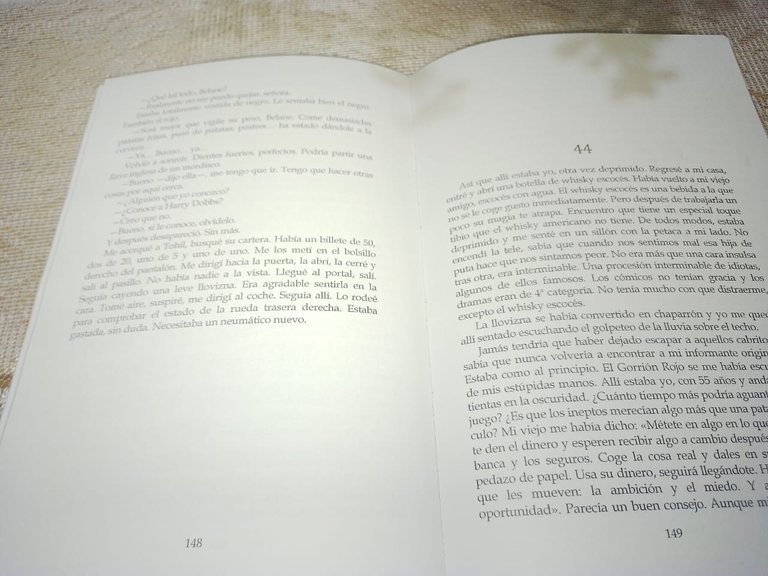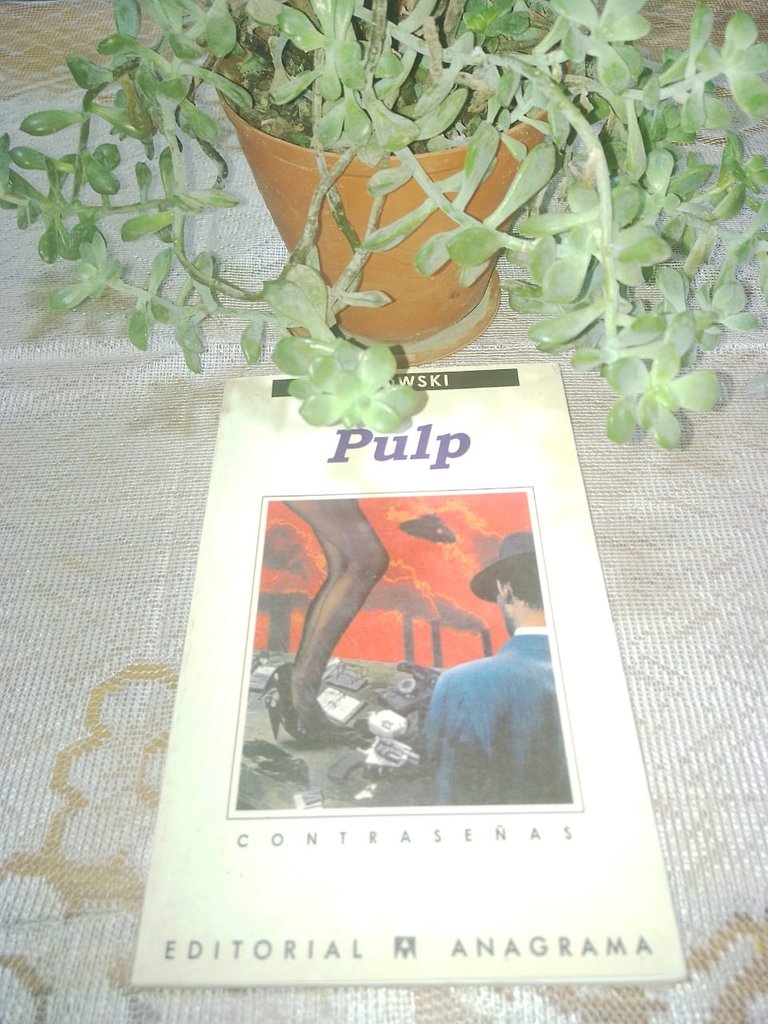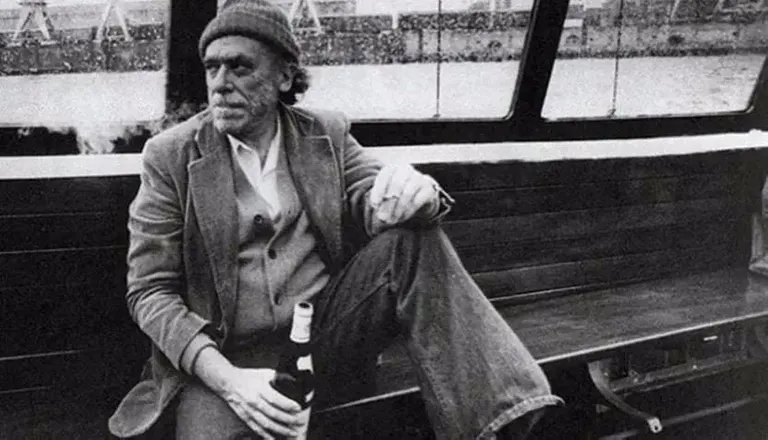PULP, BEYOND THE NOIR NOVEL

Pulp is a novel by Charles Bukowski published in 1994, in which the author combines his raw, realistic style with elements of the crime novel. The plot follows Nick Belane, a middle-aged writer and private detective in Los Angeles. Belane must find the Red Sparrow, investigate whether Jack Bass' wife is unfaithful and, hired by a mysterious and eccentric client, find a supposedly missing writer: the famous Louis-Ferdinand Céline.
Céline is a historical figure in French literature, known for his unique and controversial literary style. In the play he is mentioned as a writer who influenced the style of the main character, Nick Belane, and whom he must also find, since he apparently did not die in France in 1961 and is in Los Angeles prowling the bookstores looking for first editions of Faulkner's works (a tribute within a tribute). The search for Céline leads the protagonist into a series of adventures and amusing situations. The presence of Céline in the work can be interpreted as a reflection on the influence of other writers on Bukowski's work, as well as on the nature of literature in general.

[Source](Own picture)
The contribution of "Pulp" to literature is its originality in the way Bukowski presents the story of a well-known genre, the crime novel. Bukowski uses his signature style of poetic prose, humor and rawness to create a protagonist who is an anti-hero and a story that is a critique of popular culture. In addition, the author references his own experiences as a writer and uses the story as a reflection on life and death.
One of the novel's most memorable anecdotes occurs when Nick Belane goes to a brothel to investigate the whereabouts of the missing writer. There, he is greeted by an older, experienced woman who asks him what he likes in sex. Nick replies, "Oh, I don't know. I like everything." The woman responds with a laugh, "That means you don't like anything."
The novel is full of black humor and social criticism, and this anecdote is an example of Bukowski's way of dealing with topics such as sex, old age and loneliness in a sardonic and direct manner. In short, "Pulp" is a work that defies the conventions of the crime novel genre and presents an innovative and distinctive style in contemporary literature.
THANKS FOR READING
PULP, MÁS ALLÁ DE LA NOVELA NEGRA

[Fuente](Own picture)
Pulp es una novela de Charles Bukowski publicada en 1994, en la que el autor combina su estilo crudo y realista con elementos de la novela negra. La trama sigue a Nick Belane, un escritor y detective privado de mediana edad en Los Ángeles. Belane debe encontrar al Gorrión Rojo, investigar si la mujer de Jack Bass le es infiel y, contratado por un misterioso y excéntrico cliente, encontrar a un supuesto escritor desaparecido: el famoso Louis-Ferdinand Céline.
Céline es un personaje histórico en la literatura francesa, conocido por su estilo literario único y controversial. En la obra es mencionado como un escritor que influenció el estilo del personaje principal, Nick Belane, y al que además debe hallar, pues al parecer no murió en Francia en el año 1961 y anda en Los Ángeles merodeando las librerías buscando primeras ediciones de las obras de Faulkner (homenaje dentro de un homenaje). La búsqeuda de Céline lleva al protagonista a una serie de aventuras y situaciones divertidas. La presencia de Céline en la obra se puede interpretar como una reflexión sobre la influencia de otros escritores en la obra de Bukowski, así como sobre la naturaleza de la literatura en general.

El aporte de "Pulp" a la literatura es su originalidad en la forma en que Bukowski presenta la historia de un género muy conocido, la novela negra. Bukowski utiliza su estilo característico de prosa poética, humor y crudeza para crear un protagonista que es un antihéroe y un relato que es una crítica a la cultura popular. Además, el autor hace referencia a sus propias experiencias como escritor y utiliza la historia como una reflexión sobre la vida y la muerte.
Una de las anécdotas más memorables de la novela ocurre cuando Nick Belane va a una casa de citas para investigar el paradero del escritor desaparecido. Allí, es recibido por una mujer mayor y experimentada que le pregunta qué le gusta en el sexo. Nick responde: "Oh, no sé. Me gusta de todo". La mujer responde con una risa: "Eso significa que no te gusta nada".
La novela está llena de humor negro y críticas sociales, y esta anécdota es un ejemplo de la forma en que Bukowski aborda temas como el sexo, la vejez y la soledad de una manera sardónica y directa. En resumen, "Pulp" es una obra que desafía las convenciones del género de la novela negra y que presenta un estilo innovador y distintivo en la literatura contemporánea.
Congratulations @morey-lezama! You have completed the following achievement on the Hive blockchain And have been rewarded with New badge(s)
Your next target is to reach 150 posts.
You can view your badges on your board and compare yourself to others in the Ranking
If you no longer want to receive notifications, reply to this comment with the word
STOPTo support your work, I also upvoted your post!
Check out our last posts:
Support the HiveBuzz project. Vote for our proposal!
Cuando uno ama todo, entonces no ama nada, Eso va en todos los sentidos y formas en la vida, incluyendo el poli amor y cien cosas mas ja ja ja XD
Saludos, @jesustiano, gracias por visitar este post. Nos seguimos leyendo.